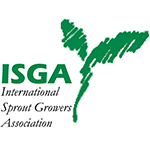An Anticancer Clover
When James Duke, Ph.D., an economic botanist and former U.S. Department of Agriculture researcher, tosses red clover sprouts into salads, he isn’t seeking simply flavor or crunch. Red clover (Trifolium pratense) contains genistein, an anticancer compound that prevents new blood vessels from forming with in a tumor. (Genistein can also be found in soy, black beans and peanuts.) Since tumors rely on new blood vessels to grow, genistein effectively starves the cancer.
Clover Sprouts
Red clover is one of the world’s oldest and most common natural cancer remedies. In fact, one study found that 33 cultures use the herb against the disease. However, it may create problems for certain cancer patients. For example, says Labriola, women being treated for breast cancer with the drug tamoxifen should avoid red clover because tamoxifen prevents estrogen from reaching a tumor, and phytoestrogenic compounds in red clover could undermine that action. In this case, it’s possible red clover could feed, not starve, an estrogen-dependent breast tumor, Labriola warns. (Editor’s Note: These same phytoestrogenic compounds can be helpful with menopausal symptoms in women who wish to naturally increase their estrogen levels.)
The scientific study of red clover is still new. Although its anticancer compounds make it an effective cancer-fighting food for some people, only further research will clarify red clover’s future cancer treatment role (Cancer Research, vol. 48, no. 22).
An Extract from “In Concert Against Cancer”,
October, 1998
By Willow Older

